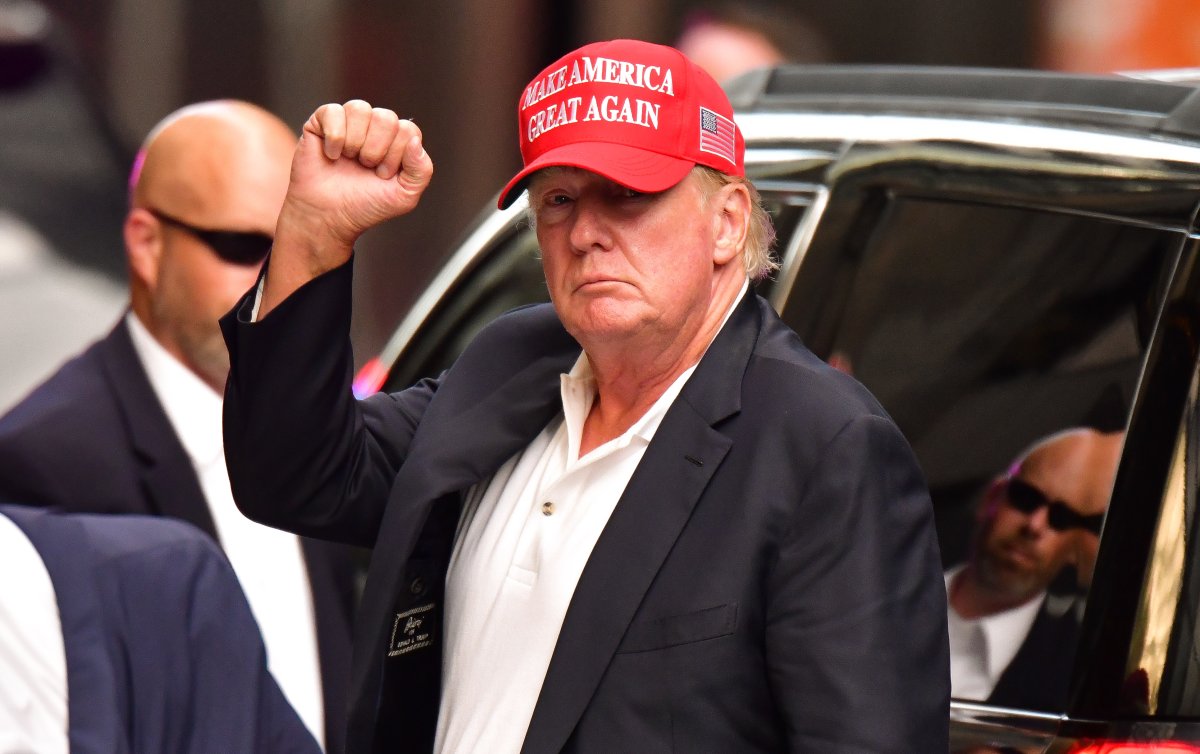CNN chief legal analyst Jeffrey Toobin has argued that there is "no basis" for prosecuting former President Donald Trump and advised restraint in bringing charges against former presidents.
In a new op-ed published on the CNN website on Monday, Toobin offered his analysis of potential charges against Trump over his actions relating to unfounded claims of fraud in the 2020 presidential election.
Toobin highlighted Trump allegedly pressuring Acting Attorney General Jeffrey Rosen to open an investigation into unsubstantiated claims of voter fraud in Georgia and his comments on January 6 before the deadly Capitol riot.
While Toobin noted that some "distinguished lawyers" believed there was a "roadmap" for Attorney General Merrick Garland to prosecute Trump, the legal analyst struck a more cautious note.
"Based on the available evidence, there is no basis to prosecute Trump and little reason even to open a criminal investigation," Toobin wrote.
Toobin then analyzed each matter that could lead to Trump's prosecution - the Insurrection Act, election fraud, obstruction of justice, the Hatch Act and conspiracy to defraud the United States - and concluded that it would be difficult to bring charges against the former president.
Toobin wrote about the possibility of prosecuting Trump under the Insurrection Act, which prohibits people from inciting or assisting rebellion against the authority of the U.S. or its laws.
"In theory, Trump's encouragement of the Capitol rioters on January 6 could be a basis for this charge against him. But there are two insurmountable problems," Toobin wrote.
"First, Trump's words were ambiguous. He urged a march to Capitol Hill, but he also discouraged violence. Second, he could argue that he was seeking to uphold the rule of law by obtaining an accurate count of the election results, not seeking to rebel against the authority of the United States," he said.
Toobin drew similar conclusions on the other potential avenues for prosecution such as election fraud and obstruction of justice, arguing that Trump's intent was the key issue when he allegedly pressured Rosen to investigate voter fraud in Georgia and during his remarks on January 6.
"Again, the problem would be proving intent. Trump would assert that he was seeking to uphold the law, not violate it, and prosecutors would have a hard time proving otherwise," Toobin wrote of Trump's interactions with Rosen.
He also argued that it could be difficult to bring an obstruction of justice charge based on Trump's comments on January 6.
"It could be said that Trump encouraged the protesters to 'impede' the electoral count, but he would argue that he was doing so to make the count more accurate, not more corrupt," Toobin wrote.
Toobin also said that while the Hatch Act makes it unlawful to "intimidate, threaten, command, or coerce" a federal employee to engage in political activity, Trump could argue that he was ordering Rosen to uphold the law. Toobin noted that the criminal provision of the act has rarely been invoked.
Finally, on the issue of conspiracy to defraud the United States, Toobin noted that Department of Justice policy states that a charge of conspiracy against the U.S. will only be brought if a person made statements to a government agency that they knew to be "false, fraudulent or deceitful."
He wrote that Trump could argue he was not lying to Rosen about voter fraud in Georgia, but merely saying what he believed to be true, making a prosecution difficult.
Toobin also warned against the prosecution of former presidents in broad terms, writing: "One mark of modern despotism is the legal pursuit of former leaders by current office-holders, and the United States has wisely avoided this cycle throughout its history."
"To be sure, this practice has its limits, and pervasive and obvious criminality by a President should be prosecuted regardless of this tradition. But if there's a close call, restraint is the better course," he said.
"Investigations of presidential wrongdoing, by Congress and others, are wise and even necessary," Toobin concluded. "But actual prosecutions are not, and Donald Trump should be the beneficiary of this tradition, even if he himself would surely not offer such grace to others."
Newsweek has asked former President Trump's office for comment.

Uncommon Knowledge
Newsweek is committed to challenging conventional wisdom and finding connections in the search for common ground.
Newsweek is committed to challenging conventional wisdom and finding connections in the search for common ground.
About the writer
Darragh Roche is a U.S. News Reporter based in Limerick, Ireland. His focus is reporting on U.S. politics. He has ... Read more
To read how Newsweek uses AI as a newsroom tool, Click here.








